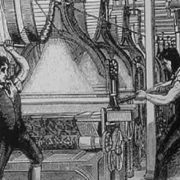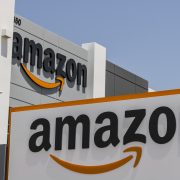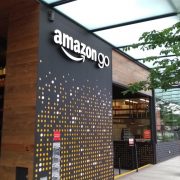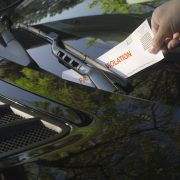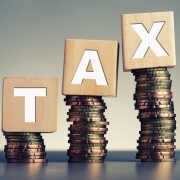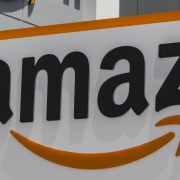In a recent Wall Street Journal column, Andy Kessler helpfully reminded readers that we were still hailing cabs when the 2010s began. It should be added that the act of hailing in days past was not infrequently done in hopeful fashion. Frustration arguably informed the act even more than hope. Think about that for a second. For city and suburb dwellers alike, cab scarcity used to very much be a source of immense aggravation that didn’t end happily.
New Yorkers were known to keep empty luggage at the office as a lure for cabdrivers when it was raining, or even when the sun was shining (the luggage created the impression of a passenger requiring a high-fare driver out to the airport). In Washington, D.C. proximity to streets heavily trafficked by cabs used to be a factor in residential choices. In poor parts of U.S. cities access to taxis was frequently non-existent. Now people just tap a button on increasingly ubiquitous smartphones and a driver arrives; usually soon after.
Thinking about smartphones, according to a report in the Washington Post from Monday, global ownership of these gadgets was, as of decade’s close, “only” 67%. “Only” is operative here simply because some technologists had predicted universal ownership as of 2020. Oh well, 67% still represents a miracle. If readers doubt the latter, they need only revisit an ad featuring the great comedic actor Rob Huebel from the early 2000s. Back then, showy cellphone (smartphones were still a future concept for the most part) use in public was still seen as obnoxious, and a sign of an insecure person trying to show off his wealth.
Speaking of communications, Richard Rahn’s column for the Washington Times referenced a work colleague who paid $2.50/minute to call family members in Ukraine 25 years ago. According to Rahn, now “she can make that call almost for nothing.” Rahn adds that while it required 171 work hours to purchase a transatlantic plane ticket in 1970, nowadays roughly 23 hours of toil purchase the same ticket. Perhaps left out by the economic commentator is that few were in the position back in 1970 to direct 171 work hours toward frivolities like transatlantic flight, let alone domestic. Lest readers forget, life’s basic necessities consumed much of one’s paycheck fifty years ago, while nowadays airports are thick with people of all income classes flying domestically and internationally; these people invariably talking on or tapping on mobile phone/computers that would have been unimaginable when the 1970s dawned.
All of the above and more came to mind amid the flurry of opinion pieces marking the end of the 2010s. As they came to a close, countless op-eds were released that celebrated the last ten years. Among other things the 10s were apparently recession free, technology progressed in exciting ways (see above), and by most accounts it was the best decade ever.
Thinking about the best decade ever, it shouldn’t surprise anyone that inequality of wealth soared amid the good times. The two are related. When individuals are prospering, life as we know it logically gets better and better. Never forget that immense wealth in a free society is nearly always a consequence of entrepreneurs meeting the needs of consumers in brilliant ways, and frequently meeting needs (see the first paragraph yet again) that consumers never knew they had.
That’s why it was so odd (but not surprising) to read Robert Samuelson’s typically mistaken read on wealth. In his Monday column for the Washington Post the Keynesian economist lamented “lopsided prosperity,” and in doing so missed how essential lopsided wealth is to societal wellbeing. When wealth inequality is rising, it’s as though we all live next door to Jeff Bezos, and others like him.
In the past, technological limits meant that there were limits to how much the world’s workers could benefit from the brilliance of the vital few, and by extension enjoy the world’s plenty. Along these lines, visitors from the east coast to the west coast used to drink Coors beer with each visit just because the “Banquet Beer” was a rarity. Coors was then a regional brand serving the needs of Americans on the west coast, but with enhanced distribution techniques that become greater by the day, Coors can increasingly be found where there are beer drinkers.
Considering Bezos, imagine if he’d been the world’s richest man in 1970 versus 2020. His genius surely would have been apparent, he would have greatly enhanced living standards, and he would have graced global magazine covers. But he would have also likely been quite a bit less than a billionaire. While much of the world might have been familiar with him, few would have been directly affected by his genius.
So why is the above true? Was the world fairer in 1970 such that the wealth pie was much more evenly divided? In truth, the world was much less fair. It was because relatively primitive technology meant that someone possessing Bezos’s brilliance could meet the needs of exponentially fewer people. Getting right to the point, there was no internet in 1970 making it possible for anyone with computer access to purchase the world’s abundance. Not only did income not stretch very far back then (see Rahn), there were exceedingly few ways to purchase the world’s goods and services.
Fast forward to the present, and what was non-existent in 1970 is now ubiquitous. Never forget that the original computers cost over $1 million in the ‘60s, and by the ‘70s they were still viewed as too expensive to ever exist as in-home technology. Thanks to the proliferation of personal computers that resulted in centimillionaires and billionaires, Jeff Bezos had his opening to create a global shopping business that people could access on their computers. A communications revolution that similarly minted mere billionaires made it possible for computer owners to purchase goods and services on Amazon from around the world. This led to arguably the world first centibillionaire in Bezos.
Thinking about all this through the prism of Bezos today versus 1970, he’s exponentially richer today because he’s able to serve exponentially more people exponentially more effectively. Bezos didn’t take wealth; rather he created it. Technological advances made it all possible.
Amazing about this is what’s ahead. They say that 5G technology will lead to the arrival of businesses and services previously unimagined. Those businesses will increasingly be staffed by “robots” such that an entrepreneur in the world’s farthest reaches will be able to expertly serve all income classes thousands of miles away in the world’s most heavily populated cities. If the technological change that took place in the 10s wows you, imagine what’s going to reach you in the 20s and beyond.
Crucial here is that as the world is shrunken even more in a figurative sense by technology, the amount of wealth created thanks to the technology promises to soar to previously unfathomable heights. The Jeff Bezos of fifty years from now will make today’s seem relatively poor by comparison, at which point future decades will make the just passed “best decade ever” seem rather ho-hum and dated by comparison.

